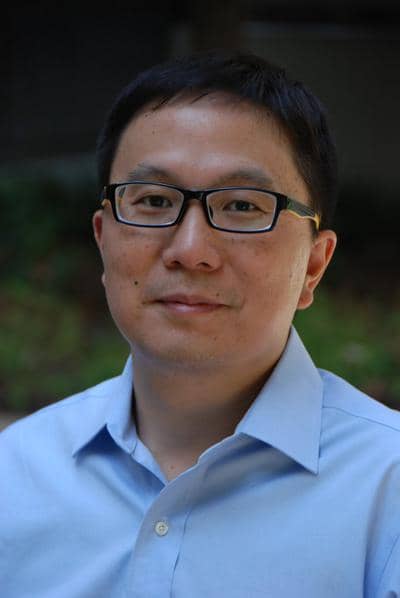Please join us for the February MIT.nano Seminar Series:
Xiangfeng Duan
 Professor, Chemistry & Biochemistry Department
Professor, Chemistry & Biochemistry Department
University of California, Los Angeles
Date: Thursday, February 9, 2023
Time: 3:00 PM - 4:00 PM ET
Location: MIT Bldg 3, Room 270
Reception to follow at MIT.nano (12-3005)
If you are unable to join us in-person, you can join via Zoom.
To receive event announcements, sign up for our email list.
Abstract
The advent of two-dimensional atomic crystals (2DACs) and bonding-free van der Waals (vdW) heterostructures has inspired a new thinking on heterostructure construction beyond the limits of traditional epitaxial heterostructures. In this lecture, Duan will discuss the broad opportunities in exploring vdW interactions for heterogeneous integration of versatile heterostructures and superlattices with designable electronic interfaces.
Duan will start with a brief introduction on using this approach for damage-free dielectric integration to enable high-speed transistors from atomically thin graphene and 2D semiconductors. He will then highlight recent advancements in exploiting this approach for creating pinning-free metal/semiconductor junctions approaching the Schottky-Mott limit, and forming high-performance contacts on delicate semiconductors.
Beyond simple vdW heterostructures, Duan will discuss a broad family of vdW superlattices consisting of alternating 2D atomic layers and/or self-assembled molecular layers, with tailored structural symmetry, electronic band modulation, and interlayer coupling as an artificial material platform for exploring emergent electronic, photonic, and exotic quantum phenomena. He will introduce a unique design of vdW thin films that feature staggered nanosheets with broad-area, pinning-free vdW interfaces to endow excellent electronic performance and extraordinary mechanical stretchability for adaptable electronic membranes.
Duan will conclude with a brief perspective on exploring such artificial vdW materials to unlock new physical limits and enable new device concepts beyond the reach of the existing materials.
Biography
Dr. Duan received his B.S. from the University of Science and Technology of China (USTC) in 1997, and his Ph.D. from Harvard University in 2002. From 2002-2008, he was a founding scientist responsible for advanced technology development at Nanosys Inc., a nanotechnology startup based partly on his doctoral research.
Dr. Duan joined UCLA as the Howard Reiss Career Development Chair in 2008, and was promoted to Associate Professor in 2012 and Full Professor in 2013. His research interests include nanoscale materials, devices, and their applications in future electronic and energy technologies. He has published over 300 papers with nearly 90,000 citations, and holds >50 issued U.S. patents.
Dr. Duan has received many awards for his pioneering research in nanoscale science and technology including MIT Technology Review Top-100 Innovator Award, NIH Director’s New Innovator Award, NSF Career Award, Alpha Chi Sigma Glen T. Seaborg Award, Herbert Newby McCoy Research Award, US Presidential Early Career Award for Scientists and Engineers (PECASE), ONR Young Investigator Award, DOE Early Career Scientist Award, Human Frontier Science Program Young Investigator Award, Dupont Young Professor, Journal of Materials Chemistry Lectureship, International Union of Materials Research Society and Singapore Materials Research Society Young Researcher Award, the Beilby Medal and Prize, the Nano Korea Award, International Society of Electrochemistry Zhao-Wu Tian Prize for Energy Electrochemistry, Science China Materials Innovation Award, AIP Horizons Lectureship, NanoMaterials Science Young Scientist Award, Materials Research Society Middle Career Researcher Award, International Union of Materials Research Society Frontier Materials Young Scientists Award, IEEE Nanotechnology Council Distinguished Lectureship, and most recently the IEEE Pioneer Award in Nanotechnology. He is currently an elected Fellow of Royal Society of Chemistry and a Fellow of American Association for the Advancement of Science.
